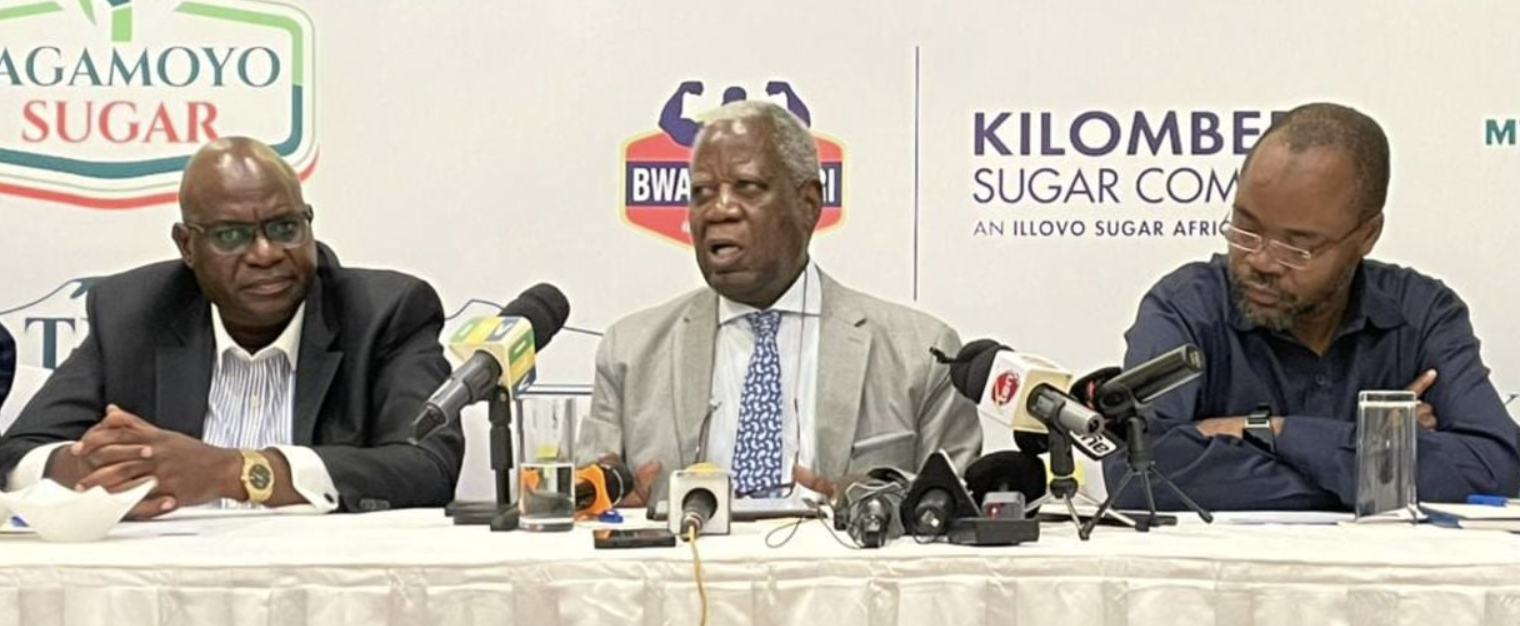In a candid and heartfelt address, Ambassador Ami Mpungwe, Chairman of the Board of Directors of Kilombero Sugar Company, shared his deep-rooted connection and insights into Tanzania’s sugar industry. With a remarkable 64-year history with Kilombero, Ambassador Mpungwe’s reflections and statements provide a compelling narrative of dedication, challenges, and the sector’s resilient spirit.
“Kilombero is in my blood,” Ambassador Mpungwe recalled his childhood days when the company was founded. “I was ten years old when Kilombero was established, and now, at 74, I’ve seen it grow and evolve over 64 years.”
Kilombero Sugar Company Limited (KSCL), located in the Morogoro region within the Southern Agricultural Growth Corridor of Tanzania (SAGCOT), is Tanzania’s largest sugar producer. Established in 1962, KSCL is a key player in the Tanzanian sugar industry, contributing significantly to the local economy and community development
Ambassador Mpungwe emphasized the significant role of various stakeholders in the industry, countering misconceptions about corporate greed and irresponsibility. “Companies like Kilombero, TPC, and those under the Bakhresa Group are proper corporate entities, respected investors who follow all protocols,” he asserted. “We are not ‘pirates’ or ‘sharks’ as some might label us. For example, Lobo Group holds 75% of shares in Kilombero, while Tanzanian citizens, through their government, hold 25%.”
Addressing the longstanding issue of sugar shortages, Ambassador Mpungwe detailed the proactive measures Kilombero and other companies took. “Since the weather forecast predicted El Niño rains, we communicated early with the government to start the process of importing sugar to prevent shortages. We diverted a ship intended to deliver sugar elsewhere, bringing 4,500 tons to Tanzania in January,” he explained. “We gambled, ensuring Tanzanians would have sugar, and when the permits were issued, we had already secured more sugar from Brazil, despite the challenges.”
He highlighted the thorough and responsible approach the companies took, prioritising the imported sugar’s quality and safety. “Food-grade ships are necessary for transporting sugar, ensuring its quality and health standards. We faced difficulties but succeeded in bringing safe, high-quality sugar to Tanzania.”
Ambassador Mpungwe also addressed the accusations of market manipulation and cartel behavior, calling for a deeper understanding and responsible journalism. “The term ‘cartel’ is a serious offense. We operate under the rule of law, and any concerns should be directed to the Fair Competition Commission (FCC), which has cleared us of such allegations in the past,” he stated. “We are appealing to the media to report responsibly and convey the truth to Tanzanians.”
Reflecting on the sugar industry’s transformative impact, Ambassador Mpungwe highlighted the economic and social benefits. “We are creating GDP growth and employment and contributing significantly to taxes. Our approach is transformative, especially in rural Tanzania,” he said. Our investments are long-term, spanning over 60 years, showing our commitment and love for Tanzania.”
Ambassador Mpungwe also addressed the media directly, urging a more balanced and informed portrayal of the industry’s efforts and challenges. “We have faced many unfounded accusations in the media, but we have remained silent out of respect and our belief in proper corporate conduct. We have always communicated with various authorities, including our ministry, to ensure that the public receives accurate information.”
The chairman shared the extensive communication efforts undertaken with the government regarding weather forecasts and the need for timely sugar imports. “When the El Niño rains were forecasted, we started communicating with the government to begin the process of importing sugar. We knew the impact this weather could have on our production, and we took early steps to mitigate it,” he said. “Our Managing Director here receives weather forecasts every morning, and we act on them promptly.”
Ambassador Mpungwe underscored the importance of understanding the sugar industry’s complexities and the need for accurate reporting. “The sugar industry has a long history and is complex. It’s not just about production and sales; it’s about maintaining quality, adhering to regulations, and ensuring that Tanzanians have access to safe and affordable sugar.”
He called for call for unity and support, emphasizing the collective effort required to sustain the industry’s growth and stability. “We are in this together. The sugar industry is vital for Tanzania’s economy, and we all have a role to play in its success. Let’s work together to ensure a bright future for all.”
